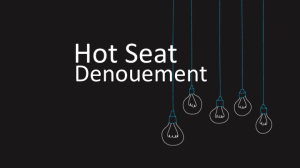Hot Seat Case Denouement #122: 10 day old with rapid breathing
Posted on: January 3, 2019, by : Haroon Shaukat MD
Mike Hrdy, MD Children’s National Medical Center
Case: 10 day old full-term female presents with a chief complaint of rapid breathing. They were a bounce-back from the day prior to the PMD and this time a video was obtained revealing intercostal and subcostal retractions. Family states it is usually after a feed but not always. Vitals and physical examination were unremarkable as well as CXR, CBC, VBG, RSV/Flu.
Here’s How You Answered Our Questions:
Discussion:
As emergency medicine physicians, we thrive on evidence based medicine protocols. Febrile neonate? Done! Afebrile neonate with tachypnea? Dang! Of course this case would not be a “Hot Seat” if it were so straightforward. This is the classic case of the wide array of risk tolerance/aversion amongst practitioners. The first poll question focused on diagnostic workup and both trainees as well as attendings felt the need to do something, while four brave souls chose to defer any labs or imaging.
After obtaining some baseline POC labs that were unremarkable except a lactate of 4.31, which we all know in pediatrics is usually secondary to incorrect obtainment rather than a true lactic acidosis. Tourniquet? On Ice? Nope and thus proven on the repeat VBG. When it ultimately came to disposition, the group was again split down the middle, similarly, with the attendings. 50% of the fellows and 50% of the attendings chose to admit this child for further observation. Of the group that felt comfortable with discharge, everyone wanted to make sure the PMD is involved in this decision making process and Dr. Isbey in completeness sake would also want to make sure there isn’t anything else the PMD is worried about prior to sending them home.
So what could this be?! Drs. Agrawal and Thomas-Mohtat gave us a quick synopsis of what is in their illness scripts. Dr. Agrawal stated 95%+ of the time respiratory distress in pulmonary in origine (bronchiolitis, PNA, PTX, URI) while <5% of the time is cardiac (CHF, Myocarditis), metabolic (IEM, hypoglycemia), infectious (sepsis), or hematologic (anemia, NAT). One thing that could have been obtained in this case were AST/ALT as this could help evaluate for systemic HSV.
Denouement:
The patient was placed into observation in the ER and monitored overnight on a pulse ox. There were no recorded episodes of desaturation or increased work of breathing and the patient tolerated several feeds. They were discharged in the morning with PCP follow up.
The information in these cases has been changed to protect patient identity and confidentiality. The images are only provided for educational purposes and members agree not to download them, share them, or otherwise use them for any other purpose.
